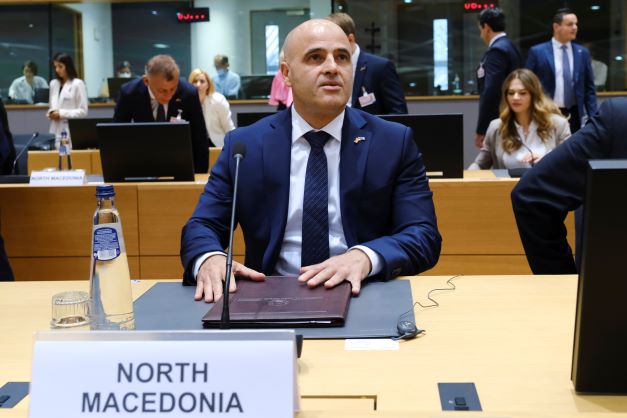The EU started the negotiation process with the opening of intergovernmental conferences with both countries in Brussels but the way ahead of North Macedonia is less straight forward.
The conferences took place after a delay of more than two years because of the need to resolve the bilateral issues between North Macedonia and Bulgaria. The go ahead for the conferences was given by the Council on Monday after the two countries had agreed on a French proposal which had been approved by the parliament in Skopje.
The difference is noticed already in the wording of the press releases issued by the Council. While EU opened accession negotiations with Albania, it says that it started the opening phase of the accession negotiations with North Macedonia.
Besides from that small detail, the EU delegation noted in both cases that the Commission has advanced its work to carry out and complete the process of analytical examination of the EU acquis (screening) and stands ready to present in due time its results to both countries.
On this basis, it invited the Commission to continue to assess the state of preparedness of the two countries for opening negotiations in specific areas and identify the issues that will most likely come up in the negotiations, starting with the fundamentals' cluster, which in accordance with the Negotiating Framework, will be opened first once the two countries have met the relevant criteria agreed by the Council. For the first time, a revised enlargement methodology will also be applied for both countries.
As previously reported, the additional condition which North Macedonia has to fulfil is to amend its constitution to include a small Bulgarian minority as one of the recognized minorities in the country. This has been one of Bulgaria’s conditions to drop its veto against starting the accession negotiations.
In the meantime, the screening process which started today will continue more or less in the same way for both countries, a Commission spokesperson confirmed at today’s daily press conference. North Macedonia, however, is expected to amend its constitution as a matter of urgency to proceed to next intergovernmental conference. The amendment requires a two-thirds majority in the parliament.
Prime Minister Dimitar Kovačevski felt honored to speak in his native Macedonian language and thanked his fellow citizens at the press conference following the start of the negotiations. He was convinced that Macedonian will become one of the official languages of the EU. He defended the decision to accept the French proposal on the bilateral issues with Bulgaria as a historical decision.
“We have adopted a democratic and patriotic decision that helps us preserve the Macedonian identity, language, and culture. This will never be negotiated. The EU accept us as Macedonians who speak the Macedonian language.”
Olivér Várhelyi, Commissioner for Neighbourhood and Enlargement, paid tribute to the French efforts during its EU presidency to reach an agreement which made the opening of negotiations possible. He assured the citizens in North Macedonia that EU wants them in the EU and was hopeful that the negotiations will have an immediate impact on the Macedonian society and economy.
The French proposal has not been published in full. At today’s daily press conference, the Commission declined to clarify if it contains any additional conditions, which might obstruct the negotiation process. There is no two-thirds majority in the parliament for the amendment of the Constitution but both the EU and the North Macedonian government seemed optimistic that the start of the negotiations will create a momentum for its adoption.
M. Apelblat
The Brussels Times

